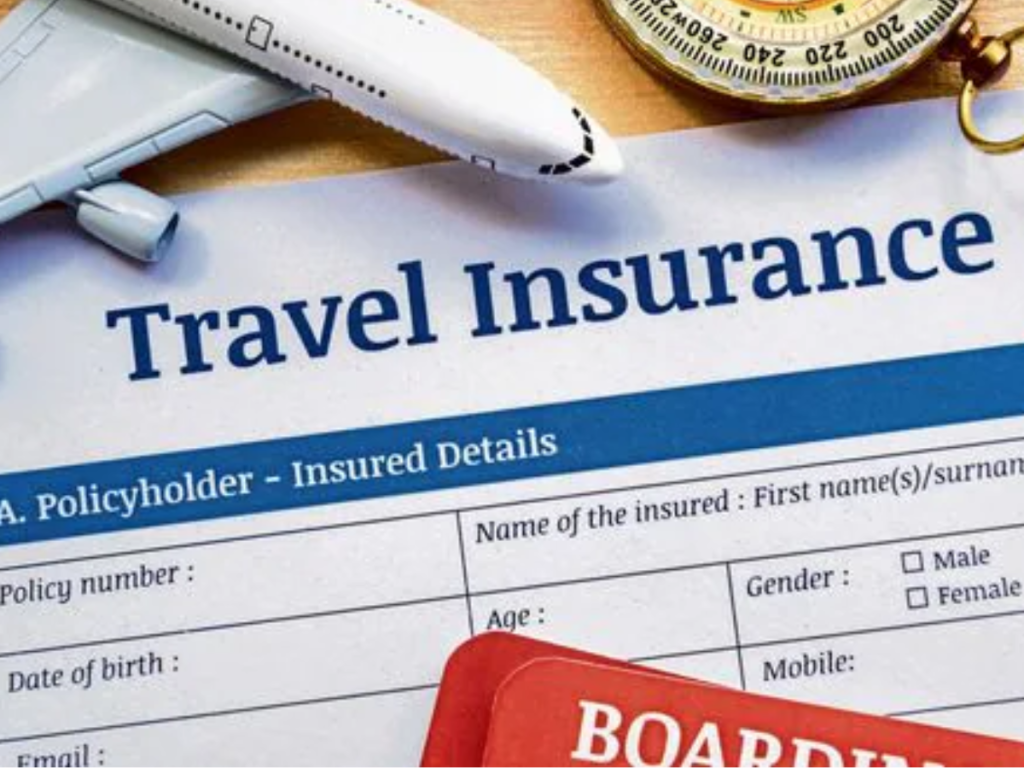Introduction
Travel is often associated with joy, discovery, and excitement. Whether you’re heading off on a relaxing beach holiday, an adventurous mountain trek, or a crucial business trip, the anticipation of the journey ahead fills most travelers with enthusiasm. However, travel doesn’t always go as planned. Flights get delayed or canceled, luggage goes missing, natural disasters strike, and sometimes, unforeseen health emergencies arise. These disruptions can not only ruin a trip but also lead to significant financial loss and emotional distress.
This is where travel insurance becomes not just an option, but a necessity. It serves as a safeguard, offering both financial compensation and emotional peace of mind during unpredictable events. In this article, we delve into how travel insurance provides relief during disruptions and why it should be an essential part of every traveler’s checklist.
Understanding Travel Insurance
Travel insurance is a specialized form of insurance designed to cover the costs and losses associated with traveling. It typically includes a variety of protections such as trip cancellations, medical emergencies, lost baggage, flight delays, and more. Policies can be tailored to individual needs, covering both domestic and international travel. Some plans offer additional features like coverage for adventure sports, rental car accidents, or even political unrest and evacuation.
Travel insurance policies generally fall under two broad categories: comprehensive travel insurance and travel medical insurance. While comprehensive plans offer extensive coverage for a variety of travel-related issues, travel medical insurance focuses specifically on health-related incidents abroad. Choosing the right plan depends on the nature of your trip and your personal risk factors.
Financial Protection During Trip Disruptions
Trip disruptions can take many forms—from missed connections and canceled flights to illness or injury during your travels. The financial impact of these events can be severe. Travel insurance provides a financial buffer that helps minimize your out-of-pocket expenses in such situations.
1. Trip Cancellation and Interruption
One of the most common and valuable features of travel insurance is trip cancellation and interruption coverage. If you’re forced to cancel your trip before departure due to covered reasons like illness, a family emergency, or severe weather, the insurance can reimburse non-refundable expenses such as flight tickets, hotel bookings, and tour costs.
Similarly, if your trip gets interrupted mid-way due to a covered incident—say, a sudden illness, political unrest, or a natural disaster—your policy can reimburse unused portions of your trip and cover additional expenses needed to return home.
2. Flight Delays and Missed Connections
Flight delays and missed connections can create a domino effect of inconvenience and cost. You may need to book a hotel for an unplanned overnight stay, arrange new transportation, or purchase meals while stranded at the airport. Travel insurance steps in to cover these unexpected expenses, ensuring you’re not left scrambling for funds in a foreign country.
Missed connections, especially when traveling on a tight schedule or using multiple carriers, can be particularly stressful. A comprehensive policy that covers missed connections can help you recover expenses related to rearranged transportation and accommodation, minimizing the financial impact.
3. Emergency Medical Expenses
Medical emergencies abroad can be both frightening and expensive. In some countries, healthcare for foreigners is not only costly but also requires upfront payments before any treatment is provided. A travel insurance policy with medical coverage ensures that you receive timely care without the stress of finding and affording medical assistance.
Coverage typically includes hospitalization, doctor visits, emergency surgeries, and sometimes even dental care. Some policies also cover medical evacuation if adequate treatment is not available locally, which can cost tens of thousands of dollars without insurance.
4. Lost, Stolen, or Delayed Baggage
Losing your luggage or having it delayed can derail your plans and force you to spend money replacing essentials like clothing, toiletries, or medications. Travel insurance usually provides compensation for lost, stolen, or delayed baggage, allowing you to recover these costs.
This not only mitigates the financial burden but also reduces the stress associated with losing your belongings, especially when far from home.
5. Personal Liability and Legal Support
In rare cases, travelers may find themselves in situations where they are legally liable for damages caused to others. Travel insurance often includes personal liability coverage, protecting you from having to pay large sums out-of-pocket for unintentional damage or injury.
Moreover, some policies offer access to legal assistance or bail bond coverage in case you encounter legal trouble abroad—something no one plans for, but is immensely helpful if it happens.
Emotional Relief and Peace of Mind
Beyond financial protection, travel insurance offers another crucial benefit: emotional relief. Travel disruptions can cause anxiety, panic, and a sense of helplessness, especially in unfamiliar environments. Knowing that you have the support of a responsive insurance provider can make a huge difference in how you cope with emergencies.
1. 24/7 Assistance and Support Services
Many travel insurance providers offer round-the-clock assistance services. Whether you need help finding a hospital, rebooking a missed flight, or locating lost documents, a support team is just a phone call away. This level of support is invaluable during emergencies, especially when there’s a language barrier or lack of local knowledge.
This service can also include concierge support, helping with travel advice, restaurant reservations, or coordinating special travel arrangements. Having someone guide you through difficult situations can reduce panic and empower you to make informed decisions under pressure.
2. Reducing Decision-Making Stress
When something goes wrong during your trip, every decision feels critical. Should you go to a local clinic or wait it out? Is it better to change your itinerary or head home? Travel insurance reduces this burden by offering clear processes, support staff, and financial reassurance, allowing you to focus on your well-being rather than logistics.
3. Helping Loved Ones Worry Less
For families and loved ones back home, knowing that you’re protected by travel insurance offers peace of mind. They’ll worry less about your safety, your access to care, and your ability to manage disruptions. This emotional benefit extends beyond you—it ripples out to everyone concerned about your well-being.
4. Mental Health Support in Crisis
Some comprehensive travel insurance policies now include mental health support, such as access to virtual counseling or assistance hotlines. If your trip is disrupted by traumatic events—like a natural disaster, political unrest, or personal assault—being able to speak with a professional can provide emotional relief and facilitate recovery.
Travel Insurance for Different Types of Travelers
Not all travelers are alike, and neither are their needs. Fortunately, travel insurance is flexible and can be customized to suit different types of travelers:
- Solo Travelers: Safety and medical support become critical when traveling alone. Insurance ensures they’re never truly without help.
- Families: Parents with children benefit from policies that cover pediatric care, family emergency changes, and lost items.
- Senior Citizens: Older travelers are at higher risk of medical emergencies. Specialized policies offer enhanced health coverage.
- Adventure Seekers: Those participating in high-risk activities like skiing, scuba diving, or hiking can add adventure sports coverage.
- Business Travelers: Business travelers can protect work-related equipment, recover canceled meeting costs, and ensure continuity with quick rearrangements.
Why Travel Insurance is an Investment, Not an Expense
Many travelers skip buying insurance thinking it’s an unnecessary expense. However, this is a short-sighted view. Compared to the potential costs of a single disrupted trip, the price of a travel insurance policy is minimal.
Consider this: a $100 travel insurance policy for a $3000 trip could save you thousands in canceled reservations, medical bills, or lost baggage. More importantly, it provides a safety net that lets you enjoy your travels with confidence, knowing that even if things go wrong, you won’t be alone or unprepared.
Travel insurance is also often required for visa applications, especially for Schengen countries, proving its importance in the eyes of global authorities.
What to Look for in a Travel Insurance Policy
Before purchasing, it’s important to review the policy’s coverage, limits, exclusions, and claim process. Look for the following:
- Comprehensive Coverage: Ensure the policy covers trip cancellations, interruptions, medical emergencies, baggage, and delays.
- Emergency Assistance Services: Choose a plan that includes 24/7 helpline and global support services.
- Clear Exclusions: Understand what’s not covered—pre-existing conditions, high-risk activities, or specific countries.
- Adequate Limits: Ensure the financial caps on coverage match the value of your trip and potential costs.
- Reputation of the Provider: Choose a reputable insurer known for prompt claims processing and support.
Conclusion
Traveling opens the door to unforgettable experiences, but it also exposes us to risks beyond our control. Travel insurance acts as both a financial shield and an emotional anchor in times of uncertainty. Whether it’s reimbursing lost funds, providing access to emergency medical care, or simply being a voice of calm in a moment of panic, travel insurance plays a vital role in ensuring your journey is memorable for all the right reasons.
Don’t leave home without it. Because while you may not be able to prevent disruptions, you can certainly prepare for them.

